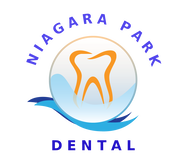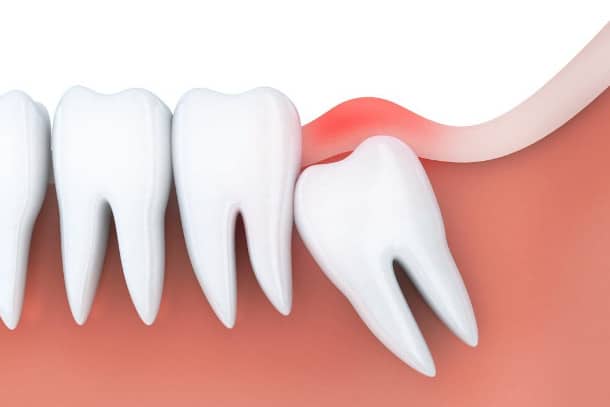A wisdom tooth is a third molar tooth at the back of your mouth. When your wisdom teeth aren’t causing any problems, it is not necessary to take them out. In some cases, these teeth can cause complications for the surrounding bones, teeth and gums, and removal is the safest option.
Wisdom tooth pain, swelling, fever, and headaches are all common symptoms that the tooth has been exposed to bacteria and has become inflamed. These problems can often be solved by cleaning and antibiotics; however, your dentist will help you understand the best pathway.
Wisdom tooth pain, swelling, fever, and headaches are all common symptoms that the tooth has been exposed to bacteria and has become inflamed. These problems can often be solved by cleaning and antibiotics; however, your dentist will help you understand the best pathway.
Problems Caused by Impacted Wisdom Teeth
Impacted (or buried) wisdom teeth stay beneath the gums and can cause multiple problems for your overall mouth. In the following cases, wisdom teeth removal is the easiest way to protect your oral health.
CrowdingContrary to common belief, an impacted wisdom tooth cannot push the front teeth, but its presence might complicate any effort to treat crowded teeth.
Erosion CavityIn this case, the wisdom tooth will erode the surface of the molar tooth in front. This will result in losing both teeth.
CystsCysts are developmental and form around the impacted tooth. Sometimes, they are premalignant and can develop into cancer.
CrowdingContrary to common belief, an impacted wisdom tooth cannot push the front teeth, but its presence might complicate any effort to treat crowded teeth.
Erosion CavityIn this case, the wisdom tooth will erode the surface of the molar tooth in front. This will result in losing both teeth.
CystsCysts are developmental and form around the impacted tooth. Sometimes, they are premalignant and can develop into cancer.
Choosing the Right Procedure
Your oral surgeon or dentist will numb the tooth and surrounding tissues with anaesthetic. If the wisdom tooth is impacted, an incision is made in the gum tissue until the tooth is visible (this may require drilling). The tooth is then gently loosened from connective tissue or cut into sections. It is then removed with surgical instruments, and the area is stitched closed if necessary.
In some cases, you may only need a local or general anaesthetic in the dentist’s chair, making the procedure fast and painless. If your wisdom teeth are in a more complicated position, the safest option is to visit a specialist and have them removed in hospital. Either way, Niagara Park Dental will help you decide on the right pathway for you.
In some cases, you may only need a local or general anaesthetic in the dentist’s chair, making the procedure fast and painless. If your wisdom teeth are in a more complicated position, the safest option is to visit a specialist and have them removed in hospital. Either way, Niagara Park Dental will help you decide on the right pathway for you.
The Risks and Complications
Although wisdom teeth removal is common and safe, there are a few risks to be aware of. Dry socket can occur when a blood clot fails to form in the socket, delaying the healing process; this can be treated by medication.
A more rare complication of wisdom teeth removal is paraesthesia where a nerve has been damaged, causing numbness that may last only a few days or weeks. Paraesthesia may be permanent in extreme cases.
A more rare complication of wisdom teeth removal is paraesthesia where a nerve has been damaged, causing numbness that may last only a few days or weeks. Paraesthesia may be permanent in extreme cases.
Important Aftercare Information
Your dentist will provide you with post extraction information and antibiotics if necessary. No rinsing should be performed until the following day, and then you should begin rinsing 5-6 times a day with a mixture of warm water and salt. Avoid hard food and straws that could irritate the area. Take caution when standing and sitting up to avoid dizziness.
|
Niagara Park Dental
3 / 16 Washington Avenue Niagara Park, NSW 2250 Email: reception@niagaraparkdental.com.au Phone: (02) 4329 3003 |
HOURS
Mon 9:00 - 5:30 Tue 9:00 - 5:30 Wed 9:00 - 5:30 Thu 9:00 - 5:30 Fri 9:00 - 5:30 |
|






